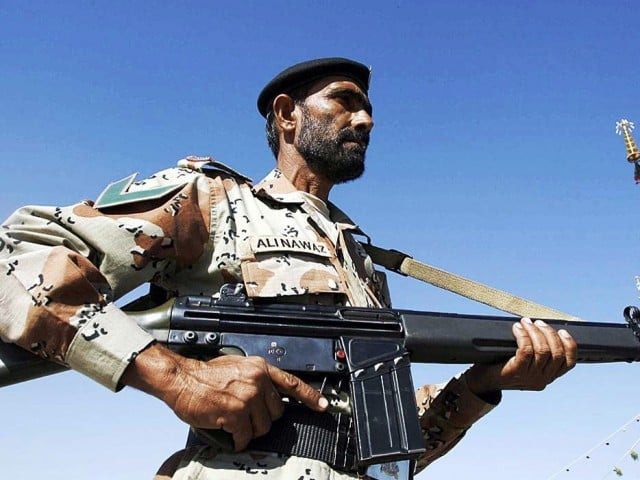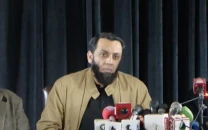Pakistan sees 66% drop in violence
Think-tank report says military operations drove militants to craft new strategies

PHOTO: APP
A report compiled by an Islamabad-based independent think tank revealed on Tuesday that the fatalities were lower than the annual average death toll (5,980 per year) recorded during 2013-2015.
The achievement says a lot about the kinetic implementation of the NAP.
The militants, facing the onslaught of the military operations and the tightening of the law enforcement noose around their necks, began fleeing the country and evolved new strategies. They targeted geographical areas and population centres that were softer, least protected and unprecedented. In addition, they deployed a wider array of improvised explosive weapons and suicide bombers despite strong resistance by the security personnel, the report by the Center for Research and Security Studies (CRSS) said.
Karachi has perhaps seen the most improvement, with urban crime and target killings on the decline. Compared to 1,671 people killed in targeted killing incidents in 2013, 183 people lost their lives in 2016. Threats, however, still exist and operate. For instance, sectarian violence has seen a major spike, even though the deaths resulting from it have reduced significantly.
The menace is far deeper than generally perceived. Although many terror attacks are not classed as sectarian violence, the motivations arise from mindsets influenced by religious hatred. The surge in attacks on a polio team and a mob in Chakwal at Ahmadi place of worship are two examples of this trend.
Women in Hazara division continue to face violence
Another major change observed was the escalation of fatalities from violence in those provinces that earlier experienced a decline while an inversely opposite trend was observed in other provinces. Violence in Balochistan spiked, while in the Federally Administered Tribal Areas (Fata) and Sindh, it declined significantly.
The persistence of militancy in Balochistan and Khyber-Pakhtunkhwa (K-P) reflected both a rapidly evolving militant strategy and difficulty for the law enforcement agencies to adapt to the changes. In Sindh, two suicide attempts were foiled by security guards while in Balochistan and K-P, such attacks could not be thwarted by the security forces. In an incident of extreme negligence, 11 ‘hardcore terrorists’ escaped from police custody in Mardan district of K-P.
The strategy shift in carrying out suicide attacks was also a big reason behind their successes. Instead of sending one suicide bomber at a location, two were sent. The multiple claims of violence by various militant outfits are reflective of similarities in their approach. Considering Islamic State or any other militant outfit as more brutal and barbarous doesn’t carry any weight in view of the crimes they commit.
Balochistan and Fata are the two important regions of the country that continue to manifest extremism and insurgency in the form of armed conflict. Throughout the country nearly 2,068 outlaws were arrested in 2016, some with known identities and groups. Only 14 of them were apprehended in Fata. This raises a serious question about the law enforcement mechanism prevailing in the region. However, 349 militants were killed in that region.
The only change observed so far in government narrative is the downgrading of militants from ‘disgruntled brothers’ to ‘foreign agents funded by foreign intelligence agencies’, especially of India. This narrative may be useful in hunting down the hardcore militants but may not be effective enough to change the mindset that gets common people riled up, and leads to, in some cases, mob attacks. Long-term, softer strategies are needed to combat the root cause of terrorism and extremism itself.



















COMMENTS
Comments are moderated and generally will be posted if they are on-topic and not abusive.
For more information, please see our Comments FAQ